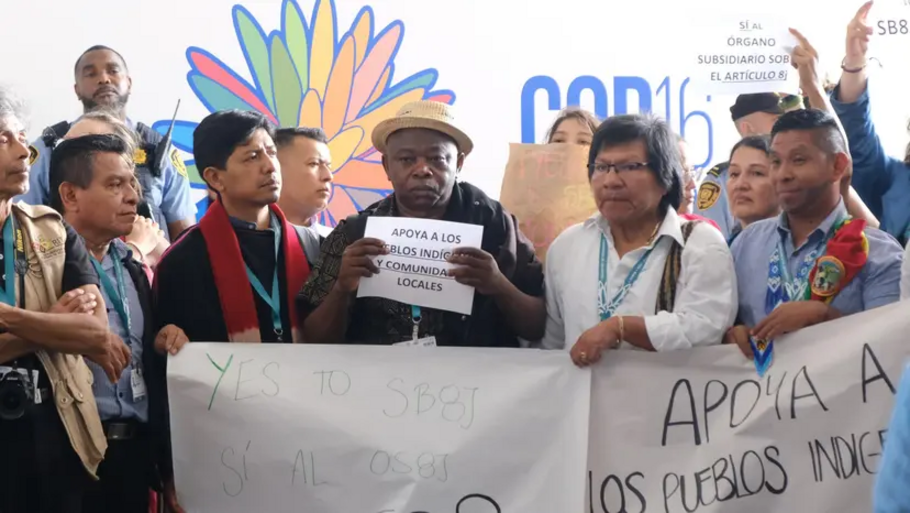
Represented by civil society and State delegations at COP16 that held from October 21st to November 1st, 2024, in Cali, Colombia, DRC celebrated an unprecedented victory thanks to the creation of the subsidiary body dedicated to the inclusion of indigenous people and local communities and their recognition as key leaders of conservation efforts.
Compared to COP15 often described as a “missed opportunity” to protect the rights of indigenous people, COP16 – also called the “people’s COP” witnessed the official recognition of the role of indigenous people and local communities (IPLC) as keepers of nature especially via the creation of a permanent group, “Subsidiary body” –representing them and the implementation of a new global fund (“Cali Fund”) for the equal distribution of genetic resources derived from biodiversity.
Though the event ended without major agreement on funding, it marked a significant progress in response to long-term expectations. More than 190 signatory states, including the DRC, to the Kunming-Montreal Agreement aimed at stopping and reversing biodiversity loss by 2030, met in Cali, Colombia, at the 16th Conference of the Parties (“COP16”) to the United Nations Convention on Biological Diversity (CBD) to review progress made, assess countries' commitments and clarify funding and profit-sharing mechanism for biodiversity.
For three decades, indigenous peoples and local communities around the world have attempted to obtain the creation of this body, symbol of an improved procedural justice, which guarantees that the voices of these populations will be better heard and considered in future negotiations. The newly created subsidiary group will be tasked with supporting and assessing the implementation of CBD decisions relating to indigenous peoples and local communities, while advising the COP on measures to be taken to preserve and strengthen their traditional knowledge of biodiversity conservation. Seven of the 23 objectives of the Global Biodiversity Framework explicitly makes reference to the in-depth knowledge and key role of indigenous peoples in the protection and sustainable use of biodiversity, whose positive role was highlighted by the IPBES in 2019.
Share: